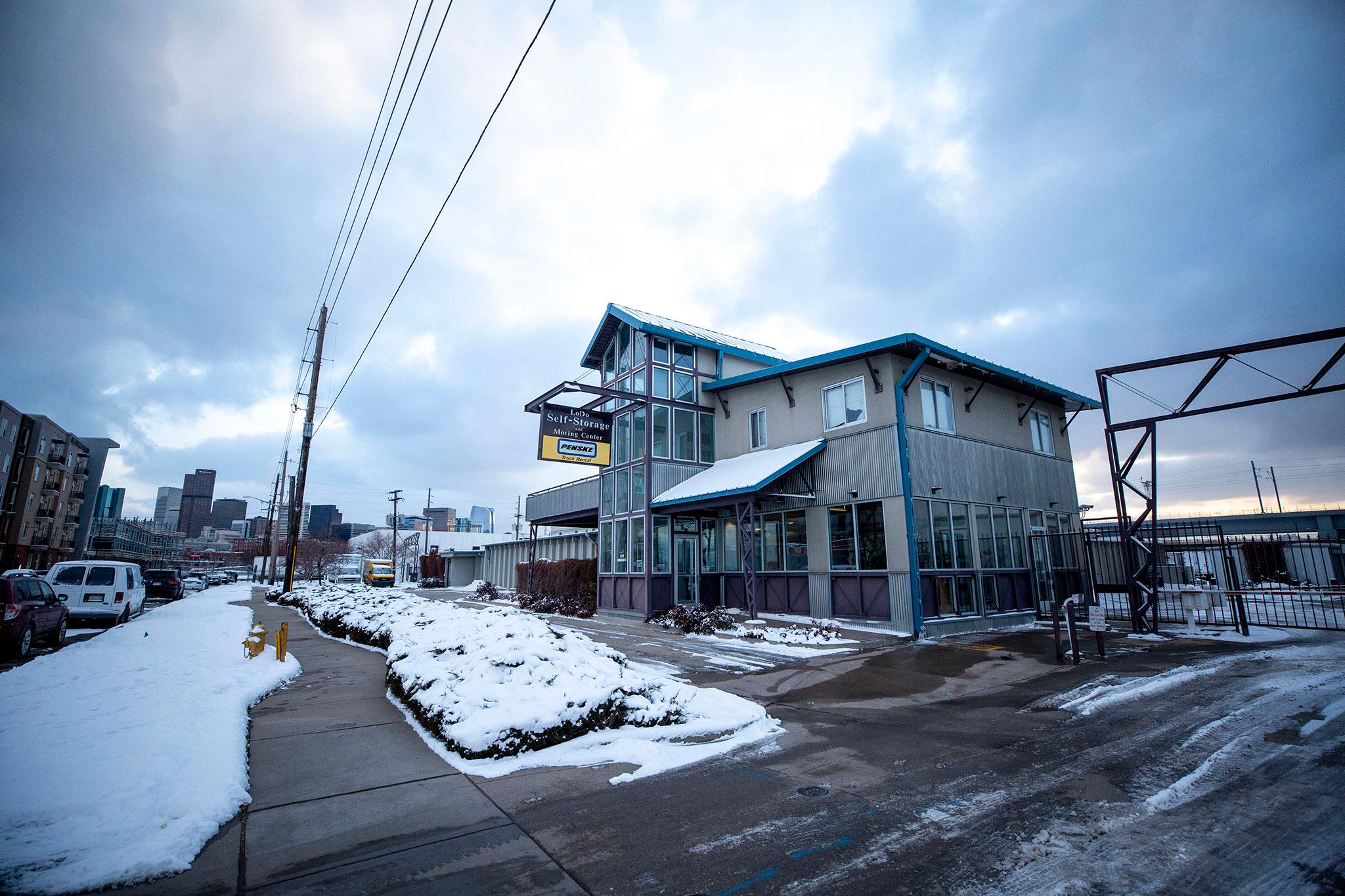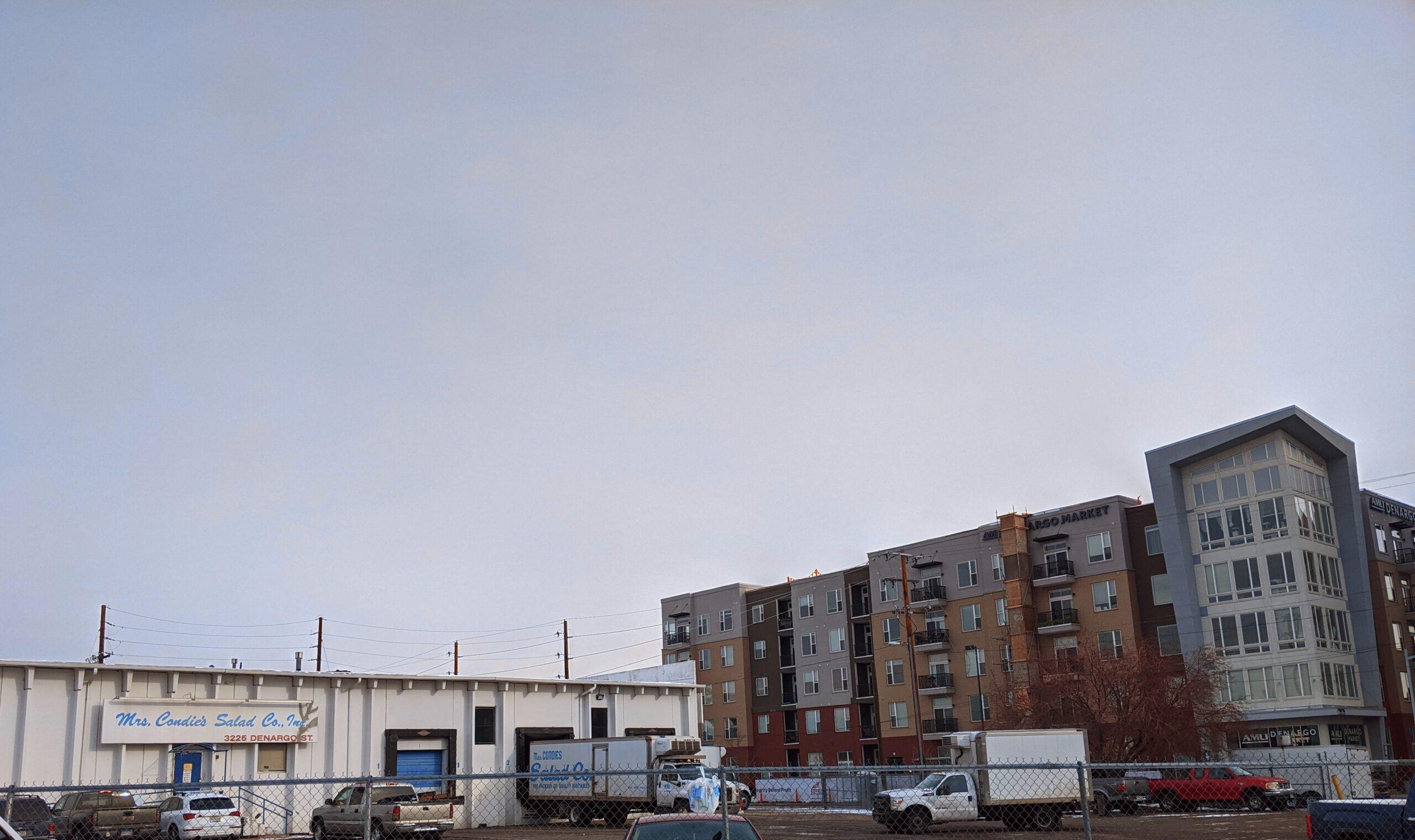On Monday, Denver City Council approved a request to rezone a lot in a fast-changing part of Five Points so that housing -- 15 percent of it income-restricted -- and shops can be built along the South Platte River where a vegetable packaging and processing facility now sit.
The developers, Cypress Real Estate Advisors, plan to put up a $20 million, 16-story mixed-use building that will have 325 apartments at 3225 Denargo St., across from a residential high-rise and a parking lot for a sleek office complex. The area used to be Denargo Market, a fresh produce hub that kept Denver fed for decades. For about ten years it has been transforming into a largely residential area also called Denargo Market that already has more than 900 apartments with plans to add hundreds more. The development that Cypress proposed for 3225 Denargo would be the first in Denargo Market to include affordable housing.
The measure that passed Monday by a vote of 9 to 4 was the second attempt by Austin-based Cypress to get a rezoning for a project it envisions taking up several lots in Five Points. Earlier this year, City Council narrowly rejected a Cypress request to rezone 3275 and 3315 Denargo St. so that it could raze a food processing plant and a self-storage building and put up a 650-unit apartment building. The project rejected earlier this year would have had 65 units priced within reach of people making no more than 80 percent of the median area income. Some of the councilmembers who voted no in May wanted more affordable units, including more homes that could be rented by people making far less than 80 percent of the area median income.
The comments Monday from council and community members during a hearing on Cypress's request fell largely into two categories: arguments that new housing, whatever the price, was needed in a city where housing prices have risen more quickly than wages; and calls to prioritize building homes that low- and moderate-income families can afford.
"Stopping housing development is not the answer to our housing crisis," District 4 Councilmember Kendra Black said before voting to approve the zoning change. She was joined by Jolon Clark, Kevin Flynn, Stacie Gilmore, Chris Herndon, Chris Hinds, Paul Kashmann, Robin Kniech and Debbie Ortego.
Councilmember Candi CdeBaca, whose district is home to the development, compared the planned building to "a bomb in the middle of this community" that would lead to longstanding residents being priced out. CdeBaca voted "hell, no" and was joined in opposition by Amanda Sandoval, Amanda Sawyer and Jamie Torres.
Other issues raised during Monday's lengthy hearing reflected concerns about growth and about the economy that have been exacerbated by the coronavirus.

Adam Estroff, of the pro-housing group YIMBY Denver, supported the Cypress request on the grounds that any new affordable units were welcome. But he said the focus should be on addressing single-family zoning that leaves little of the city available for the kind of density he saw as necessary to address the housing crisis. He said the neighborhoods that are left to provide space for growth are often largely minority or industrial areas such as Denargo Market.
Gayle LeRoux, a Globeville resident who spoke against Cypress's request during Monday's meeting, said that instead of approving a change in zoning designation from industrial to one that would allow housing, the city should be looking for partners who could bring manufacturing jobs to the area.
"This zone change is easy and lazy," LeRoux said
As part of the request before council, Cypress promised that 49 of the apartments proposed for the site at 3225 Denargo would be affordable -- meaning in most cases that rent would take up no more than a third of the income of households earning up to 80 percent of the area median income. Sixteen of the apartments would be for those earning up to 60 percent AMI. The AMI for a family of four in Denver is currently $100,000. City planning staff say it would be the first development in Denargo Market to include affordable housing.
City planners say that under Denver's affordable housing laws, Cypress was obligated to build only five income-restricted apartments, or it could pay into a fund that the city uses for affordable housing projects elsewhere.
Chase Hill of Cypress told council members that each unit, whether offered at below-market rents, would each cost $400,000 to build. Hill said Cypress was not seeking government subsidies or tax credits to build the affordable units, saying the effort of doing so was too great and the potential benefit too little.
During the hearing, Hill was questioned by Sandoval, who proposed that more affordable apartments could be built if developers "put people first, put people over profits."
Hill acknowledged "there's a need for deep affordability and more of it" across metro Denver. But he said the impediment was less a matter of profit than of getting the project built at all. He said Cypress needed investors and lenders to raise money for the project, and those investors and lenders expected a return on what they put in.
Debra Bustos, a deputy director in the city's housing department, said the city cannot force developers to build more affordable units, but it works with them to get as much as possible.
"We cannot mandate what developers do," she said. "We can encourage. We can urge. But we cannot mandate."
Alfonso Espino, an organizer with a community development group in the nearby neighborhoods of Globeville and Elyria-Swansea, told councilmembers he felt neither Cypress nor the city's housing department had done enough to understand or address the needs of area residents.
Espino's group, the GES Coalition Organizing for Health and Housing Justice, among 22 individuals or groups who wrote to the city opposing Cypress's request. The GES Coalition expressed concern at the loss of the jobs available at the businesses now at the site and at the impact that new market-rate housing was likely to have on rents and property values in the area.
"We are talking about people's ability to stay in their homes and neighborhoods, their basic survival and ability to stay in the community and city they love," the GES Coalition wrote.
The group also noted that at the end of November, the public works department cleared a large homeless encampment near 3225 Denargo.
"There is no balance between the haves and have-nots and this type of extreme land use change will promote this dynamic instead of intentionally addressing both homelessness and displacement," the GES Coalition wrote.
But another neighborhood group was among four supporters that wrote to the city about the request. The Elyria-Swansea-Globeville Business Association wrote to the city that it appreciated that Cypress was "voluntarily proposing an affordable housing agreement to reserve a total of 10 percent of the units for households at 60 percent and at 80 percent of the area median income. We believe the broader business and residential community will benefit from this rezoning ...."













